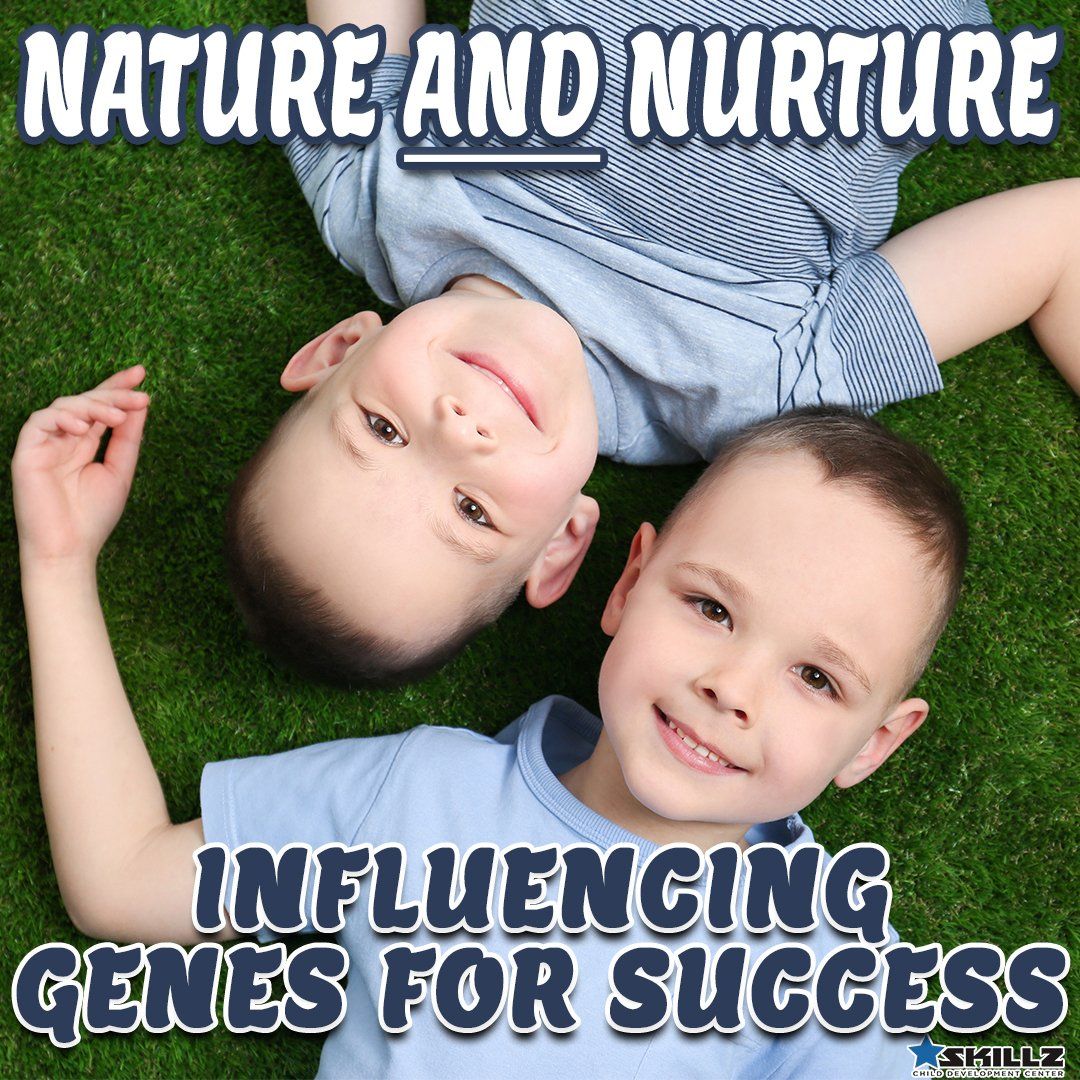Blog Layout
Nature and Nurture - Influencing Genes for Success
CD Young • Jan 25, 2021
Nature and Nurture - Influencing Genes for Success

Nature and Nurture - Influencing Genes for Success
Is it nature, is it nurture? That is the question. This age-old debate, in the world of psychology, has been a source of controversy for decades. At some point, all parents have toyed with thoughts of which one has most influenced their child concerning personality traits, abilities, etc. And while different psychology fields have distinct beliefs, studies have shown that this debate falls along with more of a continuum, with both views interacting. With this knowledge, we can engage children in programs that will nurture the expression of traits that will lead to success and happiness.
In the nature versus nurture debate, nativists believe that all our physical and personality traits are pre-wired and cannot be influenced. On the flip side, empiricists believe that environmental factors such as childhood experiences, parenting styles, etc., influence how we develop. Today, most psychology and child development areas consider both sides and look at how nature and nurture influence how an individual develops. This approach evolved from a field of study called epigenetics.
Epigenetics is the study of how external factors can change the way genes are expressed. While we are all born with genes, we inherit from our parents, early childhood experiences, relationships, culture, and more can influence how much of a specific gene is developed. These environmental aspects make a collection of chemical marks on the gene, known as an epigenome, which alters the expression of the gene. This is why identical twins can show different personalities, skills, and behaviors. Since young brains rapidly develop, they are more sensitive to these changes. Therefore negative early childhood experiences can lead to adverse changes in the brain and cause the emergence of more harmful personality traits.
To give children the best shot at positive gene expression, we must provide supportive and nurturing experiences. And while this is most beneficial early on, neuroplasticity can support new neural connections later on, to compensate for less than ideal circumstances early in life. Adapting positive parenting styles and reinforcement practices, along with secure attachments, will provide children with a strong foundation for development.
The SKILLZ Child Development Centers provide a nurturing environment that applies the latest findings in child development and psychology to help children become strong, healthy, and resilient. This cutting-edge approach incorporates the activities that boost the release of positive chemicals in the brain, providing a healthy D.O.S.E. of constructive neural connections. The game-based learning format utilizes Brain SKILLZ and creates the most effective means for new learning to take place. In addition, the Pediatric Ninja Specialists employ strategies that motivate students to do their best and help them feel successful. The Parent SKILLZ provides added support to families as well.
When we understand how a child’s environment plays a role in expressing specific genes, we can create more ideal experiences. Positive parenting practices and child development programs that engage students and support their physical, intellectual, emotional, and social development will increase the positive chemical markers on each gene, thereby furthering their expression. This whole-child approach will foster happier and more successful children.
Presented by Skillz for
CD Young's Karate in Henderson - Henderson and Las Vegas Skillz Program
CD Young's Karate Blog
#karatenv #bestoflasvegas #hendersonblog #hendersonparents
CD Young's Karate in Henderson - Henderson and Las Vegas Skillz Program
CD Young's Karate Blog
#karatenv #bestoflasvegas #hendersonblog #hendersonparents
A CD Young's Karate Brand
Engage offers a family style martial arts program for students ages 5 and up. With separate classes for adults and kids.
© 2024
All Rights Reserved | Engage




